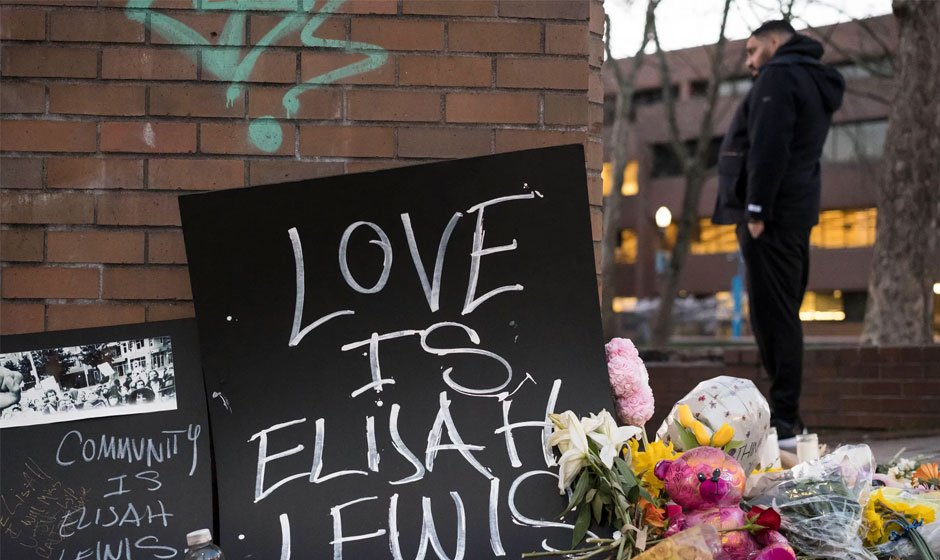Introduction
In the vibrant streets of Capitol Hill, Seattle, the air is filled with a sense of love and unity. Murals portraying Indigenous people grace the walls, while Black Lives Matter posters adorn the windows. The crosswalks are adorned with the colors of the rainbow flag, and an iridescent balloon-like art installation seemingly floats freely in the unusually blue sky. Salsa music softly plays from an open storefront, accompanied by the distant beats of a hip-hop bass line. Love appears to be everywhere, emanating from the ground beneath our feet and surrounding us in every direction. Yet, beneath the surface, this city’s heart bears the weight of a profound sorrow.
My purpose in Seattle is to search for someone: Elijah Lee Lewis. However, as I arrived, I realized that I was too late. He had become another victim of the pervasive epidemic that plagues our nation. Nevertheless, I continue my quest, driven by the hope that I may uncover traces of his presence somewhere in this city.
It was here, in Capitol Hill, that the CHOP (Capitol Hill Occupied Protest) or CHAZ (the Autonomous Zone) emerged. In the wake of George Floyd’s death, people took over this area, setting up tents, protesting, playing music, distributing food, and engaging in conversations about police reform through bullhorns. The atmosphere was predominantly peaceful, until two shootings occurred at the zone’s periphery, one of which was fatal.
I am certain that I will find signs of Elijah here, in the heart of Capitol Hill. Perhaps at the arts and cultural center on Seattle Boulevard, or in the bustling open-air market of the South End. Maybe even along the shores of Lake Washington, where children joyfully play at the water’s edge.
Through videos and images, I have witnessed the heartfelt memorials erected in Elijah’s honor. Flowers scattered in sorrow, stuffed animals representing lost innocence, and balloons carrying messages of love and remembrance. However, as I stand here now, surrounded by college students attending their final classes of the year, and children enjoying the warmth of a sunny spring day, these memorials are conspicuously absent.
On Pine Street, just across from where I stand, families gather at Molly Moon’s ice cream parlor, savoring the taste of cold treats. The sound of car tires rolling over streetcar tracks fills the air, and a passerby whizzes by on a scooter. Cal Anderson Park stretches uphill, a 7-acre green space named after Washington’s first openly gay legislator. Skateboards scrape against ramps, but Elijah’s presence eludes me, even though I know he was here in 2018.
It was in 2018, a year marked by tragedy at Marjory Stoneman Douglas High School in Florida, that Elijah Lewis, barely 18 years old, found his voice on Capitol Hill. In the face of this heart-wrenching event, students across the nation took to the streets, demanding action to protect their lives and secure their futures. Elijah stood before a microphone, his words resonating with profound significance even years later.
“Before you write any bills, before you make any decisions on guns, think about your children,” he proclaimed, addressing the crowd, the legislators in Olympia, and indeed, everyone. “Think about your grandchildren and think about their children because whatever you write now will affect generations to come.”
Over the next five years, Elijah would harness the power of his voice. He moved others through his relatable demeanor, connecting with children, peers, and elders alike. His mission was to ensure that everyone had an opportunity to succeed and partake in the joys of life. While others remained silent, he fearlessly shouted for change. He genuinely cared about people and devoted his energy to causes that uplifted them.
During those five years, Elijah saved historical landmarks of Black history, founded a theater, launched four small businesses, and shared grand ideas in late-night emails. He sent friends off to college and comforted them in times of loss. He was a brother to many, collecting a cityful of siblings who found solace and support in his unwavering presence.
Elijah often questioned the tragic fate that befell those he knew. Determined to prevent further loss, he rallied hundreds of people to sign a pledge aimed at safeguarding one another from similar tragedies. He reveled in the trappings of adulthood, decorating his own apartment and donning stylish jackets. He found joy in laughter, dance, and his mother’s renowned spaghetti. He cherished visits to his sister’s home on Capitol Hill, where he would spend time with his beloved niece and nephew, contemplating the world they would inherit.
But his time was cut short. After only five more years, he would encounter a man wielding a gun, and a single bullet would bring his life to an untimely end. Once again, his words echoed through my mind: “Before you make any decisions on guns, think about your children.”
Now, I find myself in Seattle, relentlessly searching for Elijah Lewis. As I delve into court records, I anticipate an unsettling revelation that will deepen my understanding of this tragic shooting. I wander through the city streets, yearning for signs of Elijah that elude my sight. Yet, amidst this quest, I find solace in discovering the brothers he left behind.
Elijah’s definition of brotherhood was boundless. Anyone considered his friend was regarded as family—regardless of race or ethnicity. He embraced individuals from all walks of life, forging connections that transcended superficial boundaries. In Seattle, I will meet these brothers—Latino, white, Indian—and sisters who formed an unbreakable bond with Elijah. His spirit lives on, intertwined with theirs, and I am determined to unearth the essence of Elijah Lee Lewis in every corner of this city.

